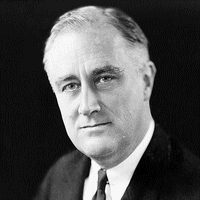President Barack Obama has successfully transformed America's strategic dialogue with the world for the better in his first year, impressing Europe -- or at least eminently sensible Norway -- enough to win a Nobel Peace Prize. In relationship after relationship, America now finds itself talking about what really matters, which in most instances means prioritizing economics above terrorism (George W. Bush's one-note presidency) and climate change (Al Gore's shrill post-vice-presidency).
For those who prefer a diet of constant fear, Obama's maddeningly calm approach is not nearly as filling as an American foreign policy forever focused on perceived existential threats. The problem with such a fear-based approach, however, is that America's strategy is inevitably interpreted by the world as constituting an attempt to prevent dark futures -- instead of enabling better ones. And since the world, as a rule, does not share our recent mania over terrorism (almost all of which happens inside their borders) and climate change (developing economies will take their development first and environmentalism later, just like we did), our deeper motives are assumed to be nefarious -- namely, the preservation of American "hegemony."
In focusing more on economics, Obama has begun to reorient America's grand strategy impulse back to its post-World War II roots: Franklin D. Roosevelt's dream of a "new deal for the world," which sought to remake a savagely colonialized global order in our economic image. But to see the project through, Obama must likewise come to the rescue of our beleaguered middle class. The latter's identity has come under assault thanks to our decades-long success in expanding FDR's international liberal trade order into what we now call globalization, replete with its own, frighteningly large -- and greedy -- global middle class. So every effort to "rebalance" the global economy must be paired with similar efforts to re-grade the economic landscape back home -- a Rooseveltian instinct that recalls the transformative presidencies of both Franklin and his cousin, Theodore.

